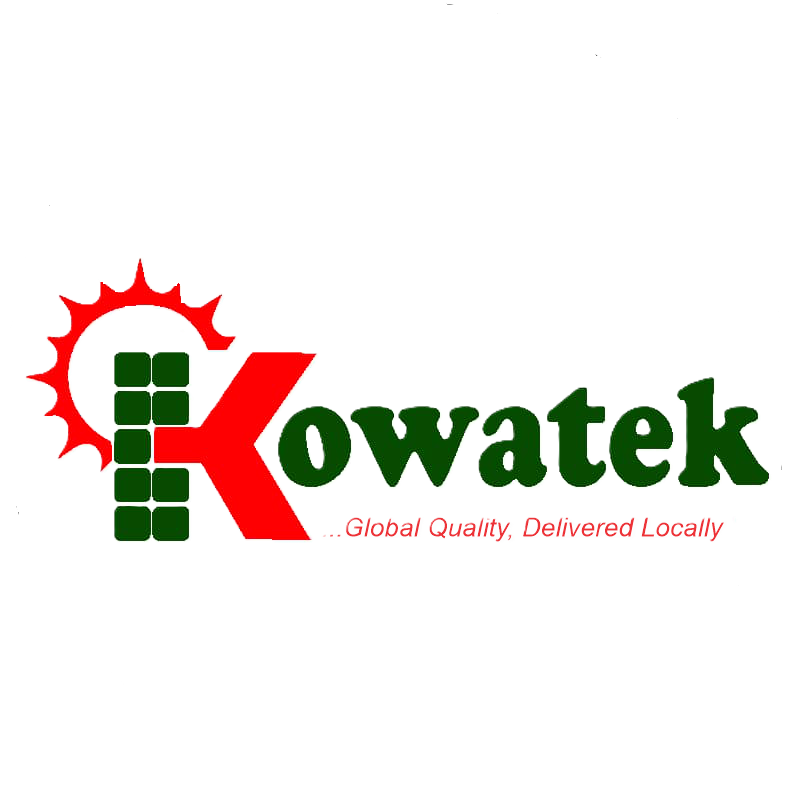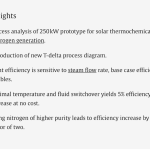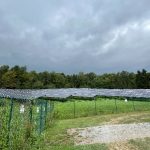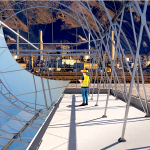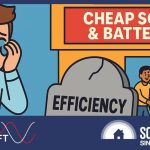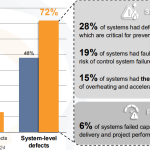Support CleanTechnica’s work through a Substack subscription or on Stripe.

The solar power industry is soaring. Developers added 12 gigawatts (GW) of new utility-scale solar electric generating capacity in the US during the first half of 2025, and they plan to add another 21 GW in the second half of the year. The buildout to 64 GW that developers plan to bring online this year means that solar is helping the world meet its climate goals by replacing fossil fuels. Yet, unfortunately, solar inroads sometimes get overshadowed by consumer discontent with the solar industry.
A recent CleanTechnica survey was designed to get a sense of how our readers feel about solar. While we’re still crunching the data, we found the response to one question particularly striking.
When asked to describe the degree to which they agreed with the statement, “I think the solar industry is trustworthy,” the average rating was only 3.5 out of a possible 5. Said another way, over 35% of respondents answered in the poor to middle range.
Why is that? What kinds of interactions have potential or actual solar customers had with solar industry representatives? What has happened to make the same individuals who love rooftop solar feel much less positive about the industry itself?
If you have an explanation based on your own personal experience, will you please write it in the comments section at the end? It will help us to understand this malaise in response to the solar industry.
Meanwhile, here is a complication of research that offers some rationale why consumers are reluctant to term the solar industry “trustworthy.” How do these conclusions jive with your own exchanges with the solar industry?
From Early Days to a Thriving Industry
A number of milestones track the evolution of the solar industry. Here are some highlights:
- With improving technology, falling costs, and federal policy support, the US officially eclipsed one gigawatt of solar electric generating capacity in 2008.
- Burlington, Vermont became the first city in the country to be entirely powered by renewable sources in September 2014.
- In 2017, the US solar industry hit a SunShot Initiative goal three years ahead of schedule when average utility-scale solar prices fell below $1/watt for the first time ever. Considering this early success, the DOE began looking towards their SunShot 2030 goals, which aimed to reduce the cost of solar-generated electricity by 50% between 2020 and 2030.
- Now in 2025 solar energy has become the #1 source of new electricity generation capacity in the US, like in other markets around the world.
What began as a group of well-meaning hippies who loved the idea of getting electricity from the sun transformed into hundreds of viable solar companies in the mass marketplace. Most of the companies today are reputable and reliable.
A handful, however, have leaned more toward profit than integrity and introduced questionable sales and financing practices. That minority seems to have had a lasting hold on the solar industry’s reputation.
Customer dissatisfaction with the US residential rooftop solar industry have increased over the years.
Disgruntled solar customers have cited numerous complaints including exaggerated savings claims, high pressure sales and unclear contracts, unexpected costs and hidden fees, installation delays and scheduling problems, poor installation quality and safety concerns, poor customer service and lack of support, inaccurate or unclear performance data, problems with financing and loan terms, unclear or misleading warranty information, and misunderstanding or misrepresentation of tax credits.
Complaints against the Solar Industry Increased with Solar Adoptions
Complaints to the Federal Trade Commission’s ReportFraud.ftc.gov that contain the word “solar” increased four-fold over as many years.
The Consumer Financial Protection Bureau (CFPB) outlines that the market for residential solar panels continues to grow, in large part due to declining solar panel costs. With that growth, the CFPB noted in 2024 that marketing and door-to-door sales of solar-related financial products had become more prevalent. It warned solar customers about hidden fees and misleading statements about the financial benefits of solar. (Note: Yes, the CFPB is still open, even with Trump administration attempts to shutter it.)
As complaints against solar companies mounted, state attorneys general got involved.
In July 2024, Connecticut Attorney General William Tong sued SunRun and two smaller companies to which it subbed work. The lawsuit alleged deceptive, unfair, and illegal sales of solar power systems. “The complaints we have seen—including forged signatures, impersonations of consumers, non-permitted work, and non-functioning systems—are beyond shocking,” Tong said in a statement. In October 2024 Tong announced a $20,000 settlement with EnergyBillCruncher.com, resolving an investigation regarding false claims on social media.
This month Minnesota Attorney General Keith Ellison obtained Assurances of Discontinuance against Ambia Energy and Everlight Solar, alleging their door-to-door salespeople engaged in deceptive and misleading conduct in their attempts to sell residential solar arrays to Minnesotans and violated state law regarding door-to-door sales. “We think that having rooftop solar is good for the environment and does save people money. We don’t want people deceived, though,” Adam Welle, a lawyer with the Minnesota Attorney General’s Office, told NPR.
Office of the Attorney General for the District of Columbia Brian L. Schwalb issued a Consumer Alert last week to help inform District residents about predatory practices in the home solar system sales and loan industry. “District residents should be on high alert that some home solar system companies use misleading, high-pressure sales tactics to get them to sign predatory contracts,” Schwalb warned.
Solar Industry Advocates take on Unscrupulous Sales Reps
The trade group Solar Energy Industries Association (SEIA) has confronted the trustworthiness issue head on by developing standards member companies can agree to follow. “We want to make sure that there are no exploitative or unfair sales practices happening in our industry,” says Abigail Ross Hopper, SEIA president and CEO. The accredited standards have training requirements for solar salespeople and ensure customers have the information they need to make an informed decision.
One of the most important standards requires each solar industry company to regularly examine and consider the possibility of violations in all aspects of its business that touch on consumers or their interests. Those could include marketing, sales, origination, contract terms, contract options, installation, servicing, and loss mitigation.
Several companies in the solar industry have signed onto a service called Recheck, which will allow “companies to vet sales partners, prevent poor practices by unregistered salespeople, and identify individuals with a history of consumer protection violations who try to move from company to company.”
A recent federal program called Solar for All offers solar to low-income households. To avoid “unscrupulous characters,” the Environmental Protection Agency plans to fund efforts to create lists of reputable solar installers who participate in the program.
Efforts to weed out corrupt solar industry sales reps are important. We need to help solar to become as commonplace as possible. After all, as climate activist Bill McKibben reminds us, “Paradigm shifts like this don’t come along often.” The Industrial Revolution and the computer revolution are other big-time but infrequent examples of comparable systemic change.
We can’t let a few bad eggs sully the solar industry, can we?

Sign up for CleanTechnica’s Weekly Substack for Zach and Scott’s in-depth analyses and high level summaries, sign up for our daily newsletter, and follow us on Google News!
Have a tip for CleanTechnica? Want to advertise? Want to suggest a guest for our CleanTech Talk podcast? Contact us here.
Sign up for our daily newsletter for 15 new cleantech stories a day. Or sign up for our weekly one on top stories of the week if daily is too frequent.
CleanTechnica uses affiliate links. See our policy here.
CleanTechnica’s Comment Policy
